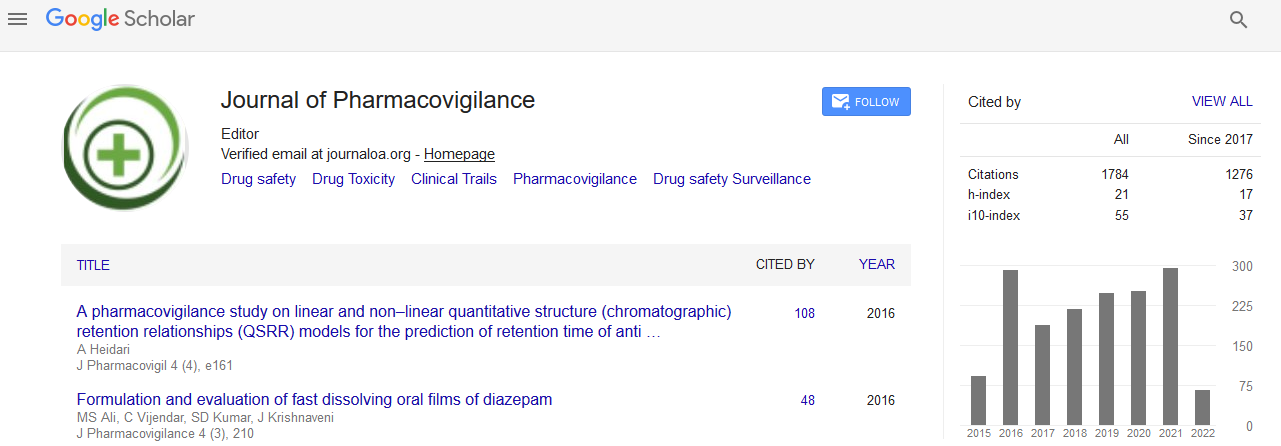Indexed In
- Open J Gate
- JournalTOCs
- The Global Impact Factor (GIF)
- RefSeek
- Hamdard University
- EBSCO A-Z
- OCLC- WorldCat
- Publons
- Euro Pub
- Google Scholar
Useful Links
Share This Page
Journal Flyer

Open Access Journals
- Agri and Aquaculture
- Biochemistry
- Bioinformatics & Systems Biology
- Business & Management
- Chemistry
- Clinical Sciences
- Engineering
- Food & Nutrition
- General Science
- Genetics & Molecular Biology
- Immunology & Microbiology
- Medical Sciences
- Neuroscience & Psychology
- Nursing & Health Care
- Pharmaceutical Sciences
Abstract
Association Study between Genes Related to Pharmacokinetics and Pharmacodynamics of Oxycodone and Response to Drug Treatment: A Genetic Cohort Study
Yoshimi A, Yoshijima Y, Miyazaki M, Kato H, Kato YK, Yamada K, Ozaki N, Kaneko R, Ishii A, Mitsuma A, Sugishita M, Ando Y and Noda Y*
Objective: Oxycodone is widely used in cancer patients with pain, but interindividual differences in both its analgesic efficacy and adverse effects are major clinical disadvantages to therapeutic use. To explore specific polymorphisms affecting drug plasma concentrations, analgesic efficacy, and adverse effects, we performed an association study between genetic polymorphisms affecting pharmacokinetics and pharmacodynamics of oxycodone and response to drug treatment in cancer patients with pain.
Methods: Blood samples were collected from 50 patients 12 h after administration of oxycodone. Genetic polymorphisms related to the pharmacokinetics and pharmacodynamics of oxycodone [cytochrome P450 (CYP3A4*1G, CYP3A5*3, and CYP2D6*10), P-glycoprotein (ABCB1), and opioid receptor μ1 (OPRM1)] were genotyped by real-time polymerase chain reaction (PCR) and plasma concentrations of oxycodone and noroxycodone were determined by ultra-performance liquid chromatography tandem mass spectrometry (UPLC-MS/MS).
Results: Carriers of specific polymorphisms (CYP3A4 *1G/*1G, CYP3A5 *1/*1, CYP2D6 100CC+CT, and ABCB1 2677TA+TT+AA) were associated with increased average total daily dose of oxycodone. CYP3A4 *1G/*1G and CYP3A5 *1/*1 were also associated with increased number of rescues and plasma concentration of oxycodone. Moreover, OPRM1 118AG+GG carriers were related to greater average total daily dose of oxycodone and increased number of rescues.
Conclusion: These findings suggest that genetic polymorphisms of genes related to pharmacokinetics and pharmacodynamics of oxycodone have a potential impact on clinical responses to drug in cancer patients with pain.
Published Date: 2019-04-30; Received Date: 2019-03-28


